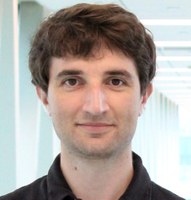Francesco Chemello

University of Bologna
His primary research interest lies in the biology of cardiac and skeletal muscles. During his PhD training at the University of Padova under the guidance of Professor Lanfranchi, he developed and applied microgenomic protocols to analyze miRNA-mRNA regulatory networks at the single-cell level, focusing on different myofiber types. He validated the effects of selected miRNAs that are differentially expressed between oxidative and glycolytic myofibers on mitochondrial functionality and cellular metabolism. Later, his research shifted towards investigating post-transcriptional regulation of biological pathways in muscle diseases such as spinal muscular atrophy (SMA), amyotrophic lateral sclerosis (ALS), and Duchenne muscular dystrophy (DMD).
During his postdoctoral training at UT Southwestern with Professor Olson, he generated novel mouse models of DMD by deleting specific exons, mimicking common mutations seen in DMD patients, or “humanizing” exons of the Dmd mouse gene to serve as tools for preclinical gene editing approaches. His analysis of skeletal muscle from these models using single nucleus RNA sequencing revealed alterations in specific transcriptional regulatory pathways across different types of nuclei, including myonuclei and nuclei of mononucleated cells, in dystrophic muscle. He also identified a previously unknown population of regenerative myonuclei exclusive to dystrophic muscles.
In efforts to correct the DMD phenotype in mouse and human induced pluripotent stem cells (hiPSCs), he explored various genome editing technologies. He demonstrated the restoration of dystrophin expression in different DMD models using a “single-cut” approach, as well as precise nucleotide genome editing technologies such as base editing and prime editing. Recently, he applied base editing in heart diseases, showing its potential to not only correct point mutations but also to suppress detrimental signaling pathways in the adult heart, offering therapeutic benefits for established heart disease.
Currently, he holds the position of Associate Professor of Genetics at the University of Bologna, within the Department of Pharmacy and Biotechnology (FABIT). He is actively developing novel base editing- and prime editing-based strategies to treat cardiac and skeletal muscle disorders. He is investigating the use of modified RNAs (modRNAs) and lipid nanoparticles (LNPs) for delivering gene editing components to target tissues. Utilizing mouse models and hiPSC-derived cardiac organoids, he is conducting preclinical in vivo and in vitro studies to assess the efficacy and safety of the latest gene editing technologies, with the aim of proposing new treatments for patients with muscle diseases.